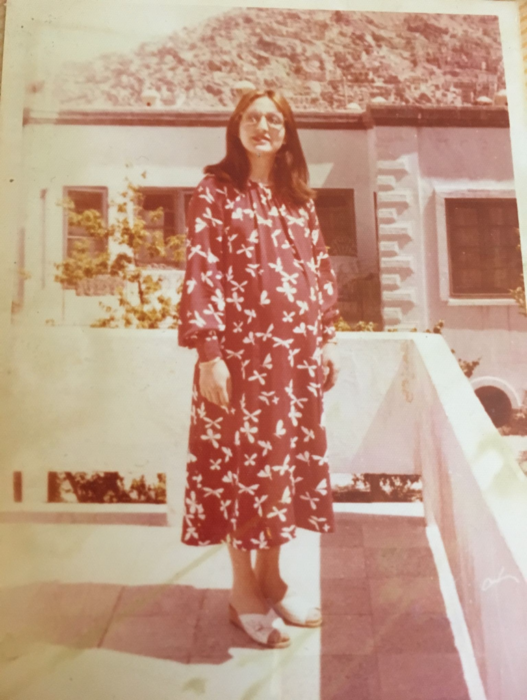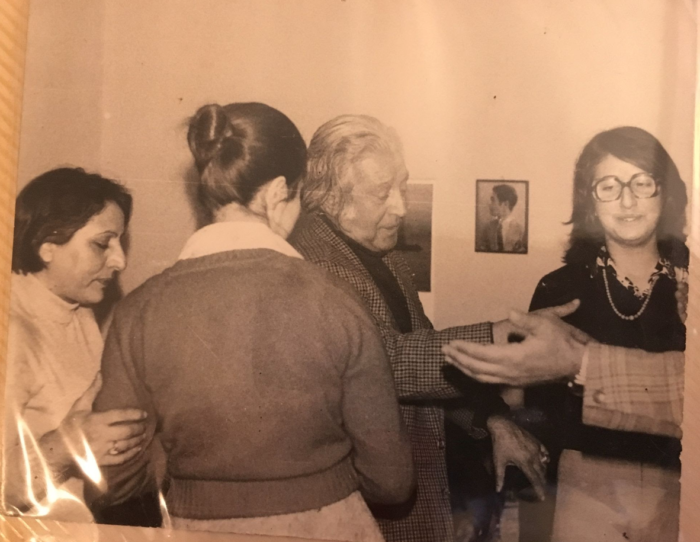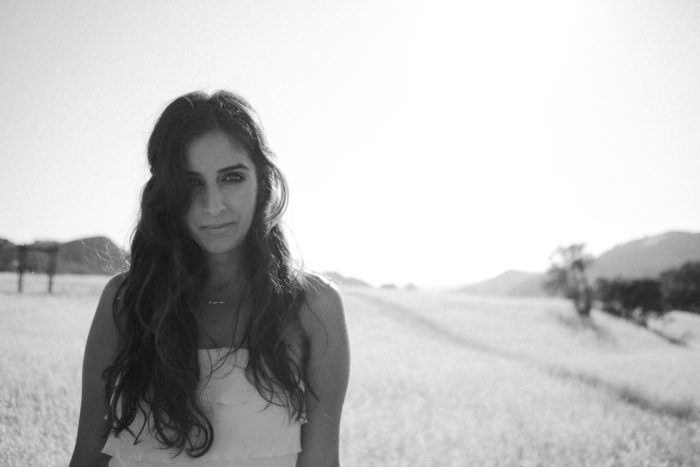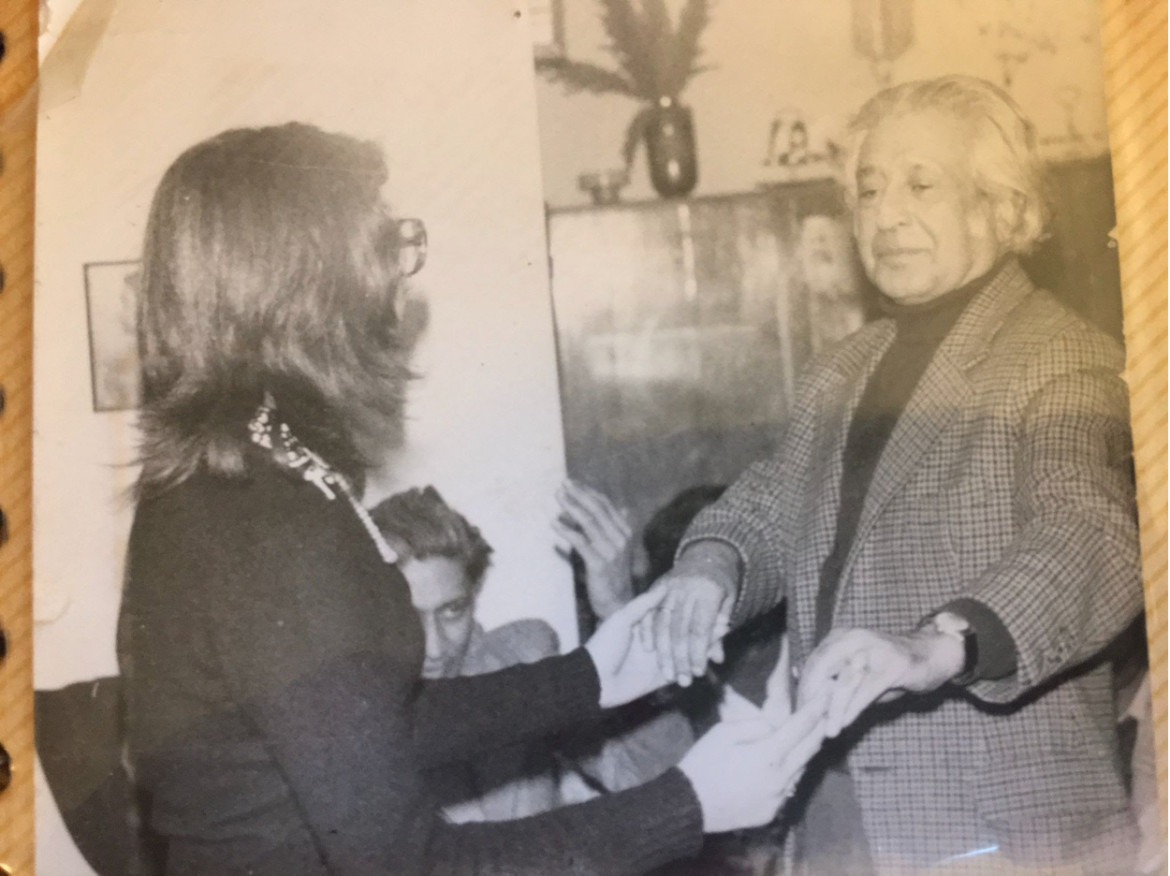My parents were Afghan refugees in the 80’s. Up until a few weeks ago, I had no idea what that really meant. Though they’ve spent the majority of their lives in America, the tragedy of the Soviet invasion of Afghanistan in the 80’s still reverberates in my family today. Recently, seeing the chaotic images of modern day Kabul got me to finally ask my family questions about their own journey, a topic I never dared breach before.

Wana’s mother pregnant in Afghanistan.
My mom was only 20 when she left Afghanistan and due to the political dangers of being a young woman, she married my dad when she was only 18. When she would tell me about her privileged upbringing in Kabul as the daughter of a diplomat, I could sense a tone of deep love and pain in her voice as she would recall a life of comfort that she unwillingly had to trade for a life of struggle. I never wanted to make her relive her trauma and nor did I want to pry so I just let her offer brief glimpses into her early life at her own will. On the rare occasion that she did share, my mind was filled with images of her and her friends in mini skirts and boots going to the movies. Most people don’t know that in the 70’s, Kabul was very modern and considered the “Paris of the Middle East.” What may come as even more of a surprise is that women there were allowed to vote before women in America—such a stark contrast to the present circumstances where it is literally ranked as the worst place to be a woman today.
My parents and extended family were fortunate to have escaped Kabul in the early 80’s. It was a difficult and harrowing journey; one that involved my mother and older brother—who was under a year old at the time—escaping Afghanistan through India and getting to Germany where they declared political asylum. Like all refugees, they endured much hardship and strife on their journey and were victims of racially motivated aggression. My dad was unable to leave with them but met them in Germany a year later. By some miracle, my dad was selling rugs and one day, one of his customers turned out to be an American Diplomat to Germany. He gave my dad his card and told him to look him up if he ever needed anything. My dad took him up on his offer and got visas for everyone to go to America where a few of his siblings lived. It seemed like at last the stars were aligning for them and things were finally turning around; but they were to befell one last tragedy on their journey. As fate had it, my mother’s purse was stolen and with it, their life savings, passports with American visas, and all their hopes of using that savings towards building a brighter future.

One of Wana’s family gatherings.
Fortunately, after a few months, they were able to secure new visas and made their way to New York where they had my sister and I. We were fortunate to grow up with a big loving Afghan community full of friends, cousins, aunts and uncles keeping our culture alive through food, song, and dance. My youth in New York was somewhat idyllic and filled with picnics in the park on Sundays, playing with my cousins, and family parties that went late into the night and ended only when the neighbors called the cops around 2 am. After 15 years, my dad, tired of the hustle of New York life, moved us to Orange County, California in 1995. I went from being just another Afghan kid in a melting pot of every culture imaginable to feeling like a very odd brown speck in a sea of conservative White, republican evangelists. No one in my class understood why my parents packed my lunchbox with rice or why my legs were so hairy. There was a pervasive feeling of ostracization. This feeling of being “different” resulted in an internalized sense of inferiority to my peers.

Wana’s mother and brother in Germany.
To make fitting in more complicated, after September 11th happened, my Afghan identity became even more problematic. It was then I chose to cast off my culture and did everything I could to distance myself from potentially being called a “terrorist” by my white classmates. As TV shows depicted quite accurately, kids in Orange County were brutal. It was not until recently that I reclaimed that part of me and felt whole once again. I am finally able to embrace the culture that I had to shun at such a young age for fear of retribution from my classmates—the culture that makes me a hospitable host, an amazing chef, and never one to show up empty handed or on time to a party. The images from August’s collapse of Afghanistan awakened not only a desire to serve my family’s homeland, but a newfound compassion for my younger self. She was trying to survive. I channeled my immense grief into taking resolute action to do as much as possible for refugees coming in and those remaining in Afghanistan.

Portrait of Wana.
Most of my friends have no idea I am Afghan so this is my opportunity to share that 40 years ago my parents were some of those people fleeing at the airport tarmac. They were the ones that left all their worldly possessions behind, save for a few photo albums and some clothing. My paternal grandfather built one of the only shoe factories in the country but my parents arrived here with barely a penny to their name. I am so proud of the life they have built for themselves and the sacrifices they have made to give me the opportunity to be an entrepreneur pursuing my dreams with reckless abandon. I hope for those who know me and now know my story, it will humanize the experience of those fleeing; to see that I am the child of those who took that same journey.











Leave a reply